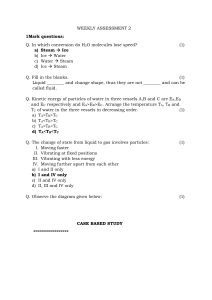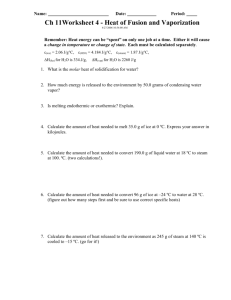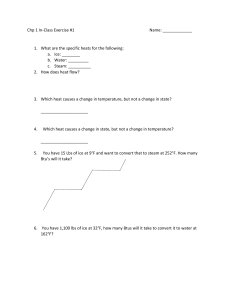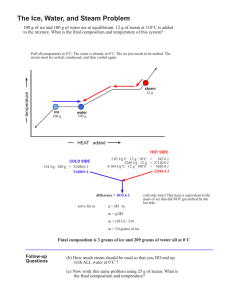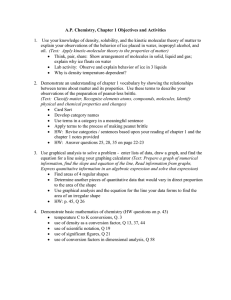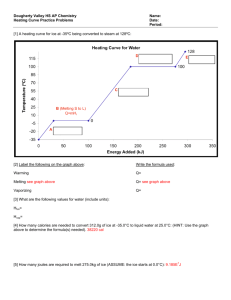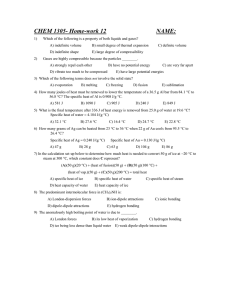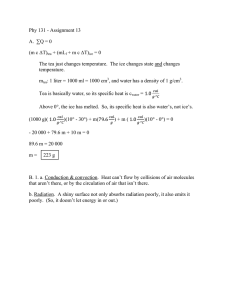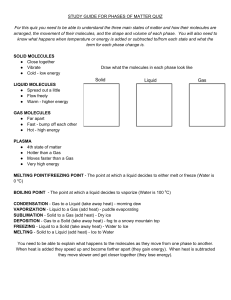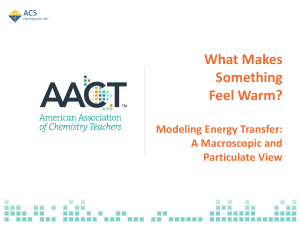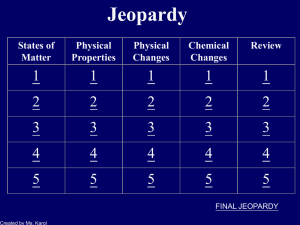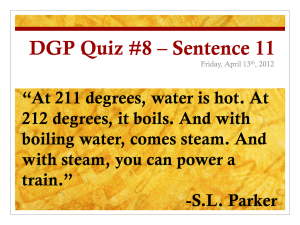Three States of Matter
advertisement
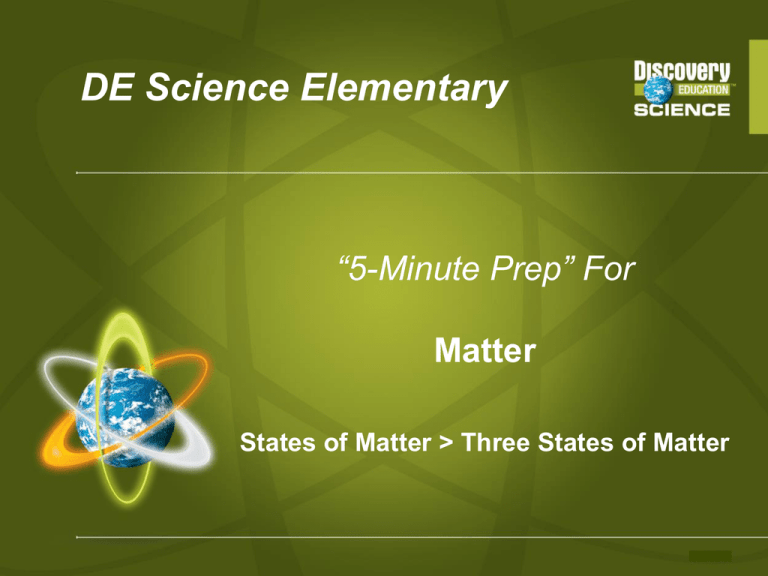
DE Science Elementary “5-Minute Prep” For Matter States of Matter > Three States of Matter Three States of Matter – The Big Ideas • • • • • Matter can exist in three states: solid, liquid, or gas. The state of matter depends on its temperature. Ice is water in its solid state. Water is a common liquid. Steam is water in its gas state. Three States of Matter – Prior Knowledge Students have been interacting with matter since birth. It will help for students to use the Fundamental, What’s the Matter, to review three states of matter. It will be helpful if students can list common: • solids. • liquids. • gases. Three States of Matter – Common Misconceptions • Materials can only exhibit properties of one state of matter. – Reality: Materials can change between states of matter, i.e. water, ice, and steam. • Expansion of matter is due to the expansion of particles rather than the increased particle spacing. – Reality: When matter is heated it expands due to the vibrating of molecules, loosening bonds, and increasing space between adjacent atoms or molecules. Three States of Matter – Using DE Science Content When you close this presentation, you can review the following recommended resources for Three States of Matter. • • • • Exploration: Three States of Matter Reading Passage: Water on Earth Video: The States of Water Video: Types of Matter Use the PowerPoint version of this presentation for hyperlinks to these resources or you can get to them through the browser or search feature. Three States of Matter – Instructional Ideas • After reading Water on Earth , have the students brainstorm and list other places and/or times of the year on Earth where water is found as a solid, liquid, and gas. Three States of Matter – Instructional Ideas • Use a computer lab to have each student or pairs of students complete the Exploration: Three States of Matter. – Ask students to describe the water cycle in a paragraph, using the terms solid, liquid, and gas in the description of the water cycle. State standards: If you wish to review your state standards regarding life cycle of plants, click here to get to the curriculum standards search feature of DES. http://discoveryeducation.com/forward/curriculum.cfm You can click on any standard to see what resources are available to teach it. Additional Information: For additional content, check the Extend section within the concept.
